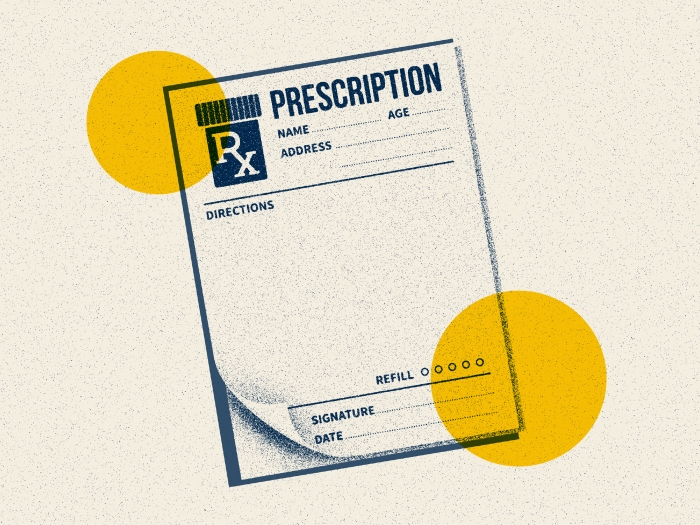A research scientist and his team examine the relationship between proton pump inhibitors, endoscopy, esophageal conditions and psychological distress for patients with GERD.
8:41 AM
Author |

Gastroesophageal reflux disease, or GERD, affects up to one in five adult men and women in the United States. And it is often characterized as a debilitating burning sensation that occurs in the chest after eating. The condition may also cause symptoms of regurgitation, belching, throat clearing and nausea.
"Individuals with GERD typically undergo esophagogastroduodenoscopy, or EGD, if their symptoms do not successfully respond to commonly used medications, like proton pump inhibitors, or PPIs. The intent of the EGD is to discover complications of GERD, like erosive esophagitis, cancer and Barrett's esophagus, which is a precursor of esophageal cancer," says Joel Rubenstein, M.D., a research scientist at the Ann Arbor Veterans Affairs Center for Clinical Management Research and professor of internal medicine at Michigan Medicine. "And some health insurance providers will not pay for EGD in patients with GERD unless their symptoms have not improved with medications like PPIs."
Rubenstein also adds that symptoms attributed to GERD that respond to medications are less likely to be caused by acid reflux.
These notions led Rubenstein and a team of experts to conduct a study to assess whether an incomplete response to PPIs is associated with further findings of esophageal pathology on endoscopy for GERD patients, as well as increased psychological distress. Their findings were recently published in Clinical Gastroenterology and Hepatology.
It's important to recognize that psychological factors like depression, anxiety and somatization are all associated with hypersensitivity to stimuli in the esophagus and a diminished response to PPI therapy for GERD.Joel Rubenstein, M.D.
For their study, the team enrolled 625 individuals aged 40 to 79 with prior heartburn or regurgitation symptoms. Logistic regression, an analysis used to describe data and explain relationships between variables, was used to estimate the effects of an incomplete response of GERD symptoms to PPI therapy on complications of erosive esophagitis or Barrett's esophagus. It also measured psychological distress on the odds of finding those complications in the study participants.
"We found that within our study pool, nearly 41% of the patients had GERD symptoms incompletely responsive to PPIs, while 56% had severe somatization," says Rubenstein. "We were able to infer that an incomplete response to PPI therapy was associated with psychological distress."
In addition, Rubenstein says that erosive esophagitis was found in nearly 24% of the subjects, while 9% of them had Barrett's esophagus. While an incomplete response to PPI therapy was not found to be linked with these conditions, individuals with greater psychological distress were less likely to have erosive esophagitis or Barrett's esophagus.
MORE FROM THE LAB: Subscribe to our weekly newsletter
"It's important to recognize that psychological factors like depression, anxiety and somatization are all associated with hypersensitivity to stimuli in the esophagus and a diminished response to PPI therapy for GERD," says Rubenstein. "So, these findings were quite eye-opening."
Rubenstein notes that patients who are at the highest risk for developing esophageal cancer, those with typical GERD symptoms responding to medications with other risk factors such as male sex, older age, obesity and smoking, but without additional psychological distress, are less likely to get endoscopies.
"Therefore, practices and payment policies need to change to bring endoscopic screening to those most at risk. And we hope that our findings will help make these changes for the better."
Paper cited: "Incomplete Response of Gastroesophageal Reflux Symptoms Poorly Predicts Erosive Esophagitis or Barrett's Esophagus," Clinical Gastroenterology and Hepatology. DOI: 10.1016/j.cgh.2020.08.044

Explore a variety of health care news & stories by visiting the Health Lab home page for more articles.

Department of Communication at Michigan Medicine
Want top health & research news weekly? Sign up for Health Lab’s newsletters today!





